The Ultimate Guide to Mainline Construction for Improved Infrastructure
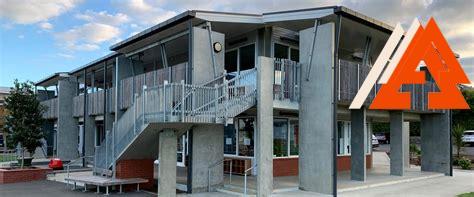
Kind Reader, Mainline construction is a vital part of the infrastructure development of a country. It involves designing and constructing the networks that transport liquids, gases, and other products across the country. Mainline construction is the backbone of the energy industry, and it is needed to transport oil, natural gas, and other fuels from the production area to the market. The process of mainline construction is complex and requires a lot of planning, engineering, and construction expertise. It is a vast field that covers several aspects, including pipeline design, material selection, right-of-way acquisition, and construction.
Mainline Construction Planning
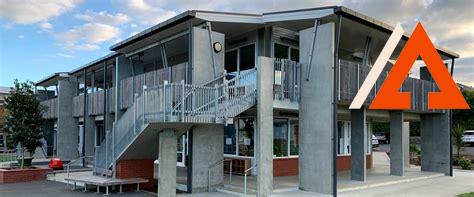
Mainline construction is the process of building the primary pipeline that carries crude oil, natural gas, or other materials from the source to its distribution point. To ensure effective mainline construction, a planning phase is essential. The planning phase of construction involves evaluating the project requirements and constraints to develop an optimized project plan that will meet the owner’s and end-users’ requirements while minimizing project risks and costs.
The Process of Mainline Construction Planning
The following are the critical processes involved in mainline construction planning:
- Project Initiation: At this stage, the project team will identify the scope of the project, potential risks, and constraints that will affect the construction process.
- Feasibility Study: The feasibility study analyzes the construction project’s economic, environmental, and social feasibility. At this stage, the project team identifies the most viable options that will provide a cost-effective and sustainable solution to the project.
- Project Planning: After completing the feasibility study, the project team will proceed with the project planning. The project team will define the construction project’s objectives, work scope, schedule, budget, and quality standards.
- Design and Engineering: At this stage, the construction project team will carry out detailed engineering, design, and construction drawings that meet the project’s specifications and requirements.
The Importance of Mainline Construction Planning
Effective mainline construction planning is essential to ensure the pipeline project’s success, from inception to completion. The following are the benefits of proper mainline construction planning:
- Minimize risks: Proper planning helps identify potential risks and constraints that may hinder the construction project’s success. This helps develop mitigation strategies that reduce the impact of threats on the project.
- Ensure project efficiency: A well-planned mainline construction project minimizes project delays, ensures project schedule compliance, and optimizes available resources to keep the project on track.
- Reduce costs: Effective mainline construction planning minimizes construction errors, reduces costly rework, and ensures timely delivery of the project, ultimately reducing construction costs.
Importance of Mainline Construction
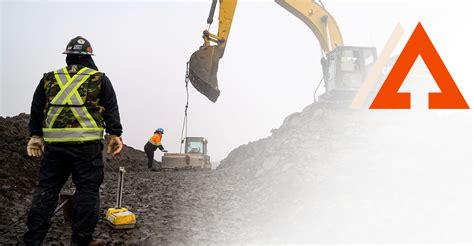
Mainline construction is a crucial aspect of infrastructure development as it involves constructing the primary network that connects residential, commercial, and industrial areas to water, gas, sewage, and drainage utilities. Without a reliable mainline system, various issues could arise, ranging from low water pressure to overflowing sewages. Therefore, the importance of constructing and maintaining an effective mainline system cannot be overemphasized.
Improved Water Management
Constructing an efficient mainline system ensures that an adequate water supply is available for domestic, industrial, and commercial use. This results in the accurate management of water distribution, which helps to prevent water wastage and water shortage in different areas. As a result, residents and businesses can rely on the water supply to carry out their daily activities.
Enhanced Safety and Health
The proper construction and maintenance of mainline systems help to prevent the spread of waterborne and air-borne diseases, reduce the likelihood of flooding and sewage overflow, and improve the health and hygiene of the community. Additionally, construction workers and contractors working on mainline projects must adhere to safety regulations, which helps to minimize or avert accidents on the construction site.
| No | Information |
|---|---|
| 1 | Mainline construction is the building of primary pipelines for gas, oil, and water. |
| 2 | The construction process involves planning, designing, excavation, welding, and installation of the pipeline. |
| 3 | The pipeline materials can include steel, plastic, or composite materials. |
| 4 | Mainline construction has to follow stringent safety regulations and environmental standards. |
| 5 | The construction process can take several months to complete, depending on the length and complexity of the pipeline. |
| 6 | Mainline construction is a critical component of the energy and water supply infrastructure. |
| 7 | Mainline construction involves collaboration and coordination with various stakeholders, including landowners, regulatory agencies, and communities. |
| 8 | The construction industry has seen technological advancements that have improved the safety, efficiency, and cost-effectiveness of mainline construction. |
Importance of Mainline Construction in Infrastructure Development

Mainline construction plays a vital role in the infrastructure development of a country, as it involves the construction of essential transportation routes that connect various places. The construction of highways, railways, and pipelines are all examples of mainline construction. These projects are crucial for a country’s economic development, as they offer a faster and more efficient way to transport goods and people.
Advantages of Mainline Construction
Mainline construction has several advantages over other types of infrastructure development. One of the significant advantages is that it provides a cost-effective way to transport goods and people. By creating efficient transportation networks, these construction projects can help save time and money for individuals and businesses.
Another advantage of mainline construction is that it can create job opportunities for people. These projects require a wide range of skills and expertise, from engineers to construction workers, which can lead to the creation of new jobs and industries. This can help boost the economy and improve the standard of living for individuals.
Challenges of Mainline Construction
While mainline construction offers many benefits, it also presents several challenges. One of the primary challenges is that these projects can be time-consuming and expensive to complete. The construction of highways, railways, and pipelines requires significant capital investment, skilled labor, and advanced equipment.
In addition, mainline construction can also impact the environment and the surrounding communities. The construction of new transportation routes can lead to land degradation, deforestation, and air, water, and noise pollution. Developers should take these factors into account and work to mitigate their impact on the natural environment and local communities.
Current Trends in Mainline Construction
The field of mainline construction is continuously evolving, with new trends and technologies emerging all the time. One current trend is the increased use of smart technology in construction projects. This includes the use of Internet of Things (IoT) devices to collect real-time data on construction progress and performance, enabling developers to make more informed decisions.
Another trend in mainline construction is the use of environmentally sustainable materials and practices. Developers are increasingly using recycled materials, low-carbon concrete, and energy-efficient building practices to reduce the environmental impact of their projects.
Importance of Quality Control in Mainline Construction

Quality control is essential in any type of construction project, and the same applies to mainline construction as well. After all, your primary objective is to have a functioning system that meets all the necessary requirements of your clients. That is precisely why you need to have a robust quality control process that ensures the project meets all its objectives while adhering to the set standards. The process involves a series of steps to ascertain quality and achieve an expected outcome.
Quality Control Process
The following are the essential steps involved in the quality control process:
- Planning: At this stage, you establish your quality standards, which includes hazardous material testing, equipment calibration, and product testing. You also identify where inspections and testing will take place.
- Inspection and Testing: This step involves continually assessing your work and monitoring sub-grade construction, backfilling, and final lift installation. It may include non-destructive testing, intrusive testing, and load testing.
- Corrective Action: If any issues are seen, you must implement specific measures to correct them. This process may include the demolition of substandard work or removing and replacing faulty equipment.
The Benefits of Quality Control
The following are some of the benefits your project will receive when you have an effective quality control process:
- Cost-effective: By catching potential construction issues early in the project, you avoid costly mistakes down the line, such as spending on extensive repair.
- Satisfied Customers: Happy customers tend to return, so if you produce high-quality work, you are more likely to gain future contracts.
- Reduced Risk: Mitigating safety and health risks in construction projects is critical. Your quality control process eliminates potential environmental and human risks in construction sites.
When implementing a quality control plan, it is necessary to have a clear understanding of the goals and expectations for the project and communicate them effectively with the project team.
The Role of Technology in Mainline Construction

Technology is not only changing many aspects of our daily lives but is also revolutionizing the construction industry, including mainline construction projects. Using technology in such construction helps improve processes and save time, from GPS mapping equipment, BIM systems, and drones to cloud-based software, smart sensors, and unmanned machinery.
Advancements in Technology and their Role in Mainline Construction
The following are some of the innovative technologies impacting mainline construction:
| No | Technology | Role |
|---|---|---|
| 1 | LIDAR Scanning | Produces high-resolution 3D images for accurate site mapping and surveying |
| 2 | Robotics and Automation | Automates tasks with the use of heavy machinery to increase accuracy and efficiency |
| 3 | Augmented Reality | Visualizes design and subsurface infrastructure before installation |
| 4 | Virtual Reality | Simulates real-world scenarios to enhance training and safety practices for employees |
| 5 | Smart Sensors | Continuous monitoring of environmental conditions like temperature, humidity, and vibration |
BIM in Mainline Construction Projects
Building Information Modeling (BIM) is a new step toward technology in mainline construction. BIM is a process that involves creating a digital model of the project that can be assessed, modified, and updated throughout the project’s lifecycle. It helps eliminate errors, reduce conflicts, and enhance effective decision-making by creating a well-coordinated project environment.
Quality Control in Mainline Construction
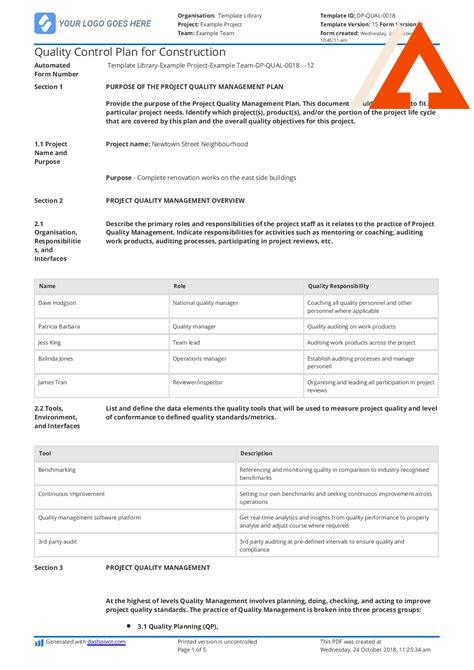
Quality control is essential in every construction process. It ensures that the project meets the standard set by the client, regulatory agency, and other stakeholders. The quality control process in mainline construction involves four main stages: pre-construction, construction, commissioning, and operation.
Pre-Construction Quality Control
Pre-construction quality control is aimed at ensuring that the design meets the client’s requirement and all relevant regulations, and standards. It involves the following:
- Reviewing design and specification documents to ensure they meet regulatory requirement
- Reviewing the design for constructability and operability
- Preparing quality plan, which includes Quality Control Plan, Inspection and Test Plan (ITP), and relevant checklists
- Performing a pre-construction survey to establish the existing condition of the site
Construction Quality Control
Construction quality control is aimed at ensuring that the construction process meets the design specification, regulatory requirements, and quality standard. It involves the following:
- Ensuring all completed works meet the requirements of the approved materials list
- Conducting regular site inspections and audits and analyzing testing results
- Operating the construction site to minimize environmental impact
- Ensuring that all equipment and material used on the site are of the approved quality
Challenges in Mainline Construction
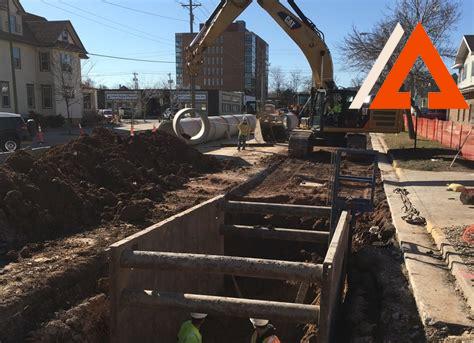
Mainline construction has a lot of challenges that need to be overcome for successful completion of the project. Here are some of the major challenges faced by construction companies during the mainline pipeline project:
Limited Accessibility
Mainline construction takes place in remote areas where accessibility is limited. Due to this, it becomes difficult to transport equipment and supplies. It’s important to plan the logistics and arrange transportation beforehand.
Environmental Factors
Environmental factors such as topography, geology, and weather can have a significant impact on mainline construction. Sudden changes in weather patterns can result in floods and landslides, which can delay the project. The geological conditions of the site can also be unpredictable resulting in the excavation of hard rock formations or the presence of natural hazards like sinkholes which could cause major issues for pipeline installation.
Legal and Regulatory Compliance
Construction companies must adhere to a lot of legal and regulatory requirements before starting construction of any project. The requirements are even more stringent when it comes to pipeline construction. Ensuring that the company isn’t violating any laws and regulations is essential to avoid any legal penalties. Governments require construction companies to get permits before construction commences. Permits must be obtained to ensure all processes seen through and the pipeline pass through the legal channels for safe execution. Environmental permit clearance is a primary aspect involving wildlife and water conservation. Safety concerns, safety clearances, and safety routines must be established and followed.
Health and Safety Concerns
Mainline construction involves a lot of heavy machinery and equipment such as drills, cranes, and bulldozers. These heavy-duty machines can pose a significant safety risk if not operated and maintained correctly. The workers must undergo training regarding heavy machinery and other equipment-related safety standards. Providing adequate safety gears such as safety shoes, helmets, ear protection and ground rules is paramount for workers’ safety during construction.
Cost Overruns and Delays
Mainline construction is a complicated process, so it isn’t uncommon to face delays and cost overruns. Delayed supply of equipment, change orders and issues with plan execution could cause cost overruns. The delay caused due to unpreparedness or not knowing the local area will force the company to pay additional expenses. It’s essential to carefully go over the estimated budget, timeline, and scope to avoid any surprises. Also, due to COVID 19, the supply chain has been impacted, which has led to a hike in the prices of building materials.
Land Acquisition
Acquiring a suitable land for construction is an essential part of mainline construction. In addition to finding land, negotiations have to be made about the cost of land, the compensation for farmers or homesteaders on the land, and other payments, such as taxes, imposed on this land. Before any construction begins, the obtained land should be surveyed and cleared of animals, plants, and other debris. Also, any rights that come with the land must be identified and resolved before the construction begins.
Project Coordination and Management
Mainline construction is a large-scale project that involves multiple stakeholders. Managing communication among these stakeholders, including engineering staff, procurement specialists, landowners, government officials, among others, can be a daunting task. To improve the chances of success, it’s essential to incorporate project management software and processes to ensure that everyone is on the same page. Meetings must be scheduled regularly to keep everyone informed.
Inspection and Maintenance
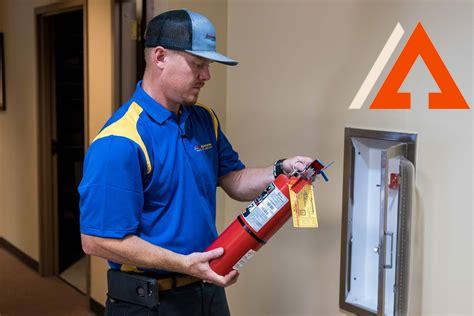
After the mainline construction is completed efficiently, it is crucial to inspect and maintain the pipeline system from time to time to ensure its smooth functioning. Inspection and maintenance are vital for the longevity of the pipeline system as it helps in identifying any potential threats or issues before they turn into major complications.
Inspection of Mainline Construction
Inspection of the mainline construction includes various steps that must be carried out diligently. This includes reviewing the insulation, monitoring the cathodic protection, reviewing the pipe coating, and checking for any signs of stress corrosion cracking. Regular inspection of the mainline construction can help identify potential issues before they cause irreparable damage, which can save a considerable amount of money in the long run.
Maintenance of Mainline Construction
Maintenance of the mainline construction includes regular cleaning of the pipeline system and repairing any damages. It also requires monitoring of the cathodic protection system to ensure that it is functioning correctly. Cleaning keeps the pipeline system free of dirt, debris, and any other contaminants that can corrode the pipes, leading to leaks and breakages. Maintenance of the mainline construction also means removing any trapped gas pockets that can interfere with the flow of liquid inside the pipeline.
| No | Steps for Inspection and Maintenance |
|---|---|
| 1 | Regular inspection of the pipeline system to identify potential issues before they escalate. |
| 2 | Maintaining the cathodic protection system and regularly monitoring its functionality. |
| 3 | Cleaning the pipeline system to remove any dirt, debris, or any other contaminants. |
| 4 | Repairing any damages found during inspection promptly. |
Mainline Construction FAQ
If you have questions or concerns about mainline construction, please see the list of frequently asked questions below.
1. What is mainline construction?
Mainline construction refers to the installation or repair of large diameter pipes that are used to transport water, gas or other liquids from one place to another.
2. Why is mainline construction necessary?
Mainline construction is necessary to maintain or upgrade the infrastructure needed to transport essential resources like water and gas to homes, businesses and communities.
3. How long does mainline construction take?
The length of time required for mainline construction depends on the size and scope of the project, but many projects can take several months to complete.
4. How disruptive is mainline construction?
Mainline construction can be disruptive, especially if it requires digging up streets or sidewalks. However, contractors will work to minimize disruptions by scheduling work during off-peak times and providing advance notice to affected residents and businesses.
5. Will my water or gas service be interrupted during mainline construction?
Your water or gas service may be temporarily interrupted during mainline construction, but contractors will notify affected residents in advance and work to minimize the duration of any service interruptions.
6. Will mainline construction affect my property values?
Mainline construction can temporarily affect property values in the immediate vicinity of the construction site, but property values typically recover once construction is complete.
7. What can I do to prepare for mainline construction in my area?
Contact your local government or utility provider to learn more about upcoming mainline construction projects in your area and to request advance notice of any service interruptions or disruptions that may occur.
8. Will I be compensated for any damage caused by mainline construction?
Contractors are responsible for repairing any damage caused by mainline construction, and you may be able to seek compensation if the contractor’s actions result in damage to your property.
9. Can I request that mainline construction be postponed or relocated?
If you have concerns about mainline construction in your area, you may be able to request that the project be postponed or relocated. Contact your local government or utility provider to learn more about your options.
10. How can I stay updated on the progress of mainline construction?
Contact your local government or utility provider to learn more about how you can stay updated on the progress of mainline construction in your area.
11. What safety measures are in place during mainline construction?
Contractors are required to adhere to strict safety measures during mainline construction, including the use of safety equipment and protocols to prevent accidents and injuries.
12. What permits are required for mainline construction?
Permits for mainline construction vary by location and project, but contractors will typically be required to obtain permits from local government and regulatory agencies before beginning construction.
13. What licenses and certifications do contractors need for mainline construction?
Contractors who perform mainline construction must typically hold a license in their state or locality and may be required to have certification in a specific area of construction such as plumbing or gas fitting.
14. What types of equipment are used in mainline construction?
Equipment used in mainline construction can include backhoes, excavators, trenching machines, and other heavy machinery designed to excavate and install large diameter pipes.
15. What should I do if I have concerns or complaints about mainline construction?
If you have concerns or complaints about mainline construction in your area, contact your local government or utility provider to learn more about how to file a complaint or seek resolution.
16. How does mainline construction affect traffic in the area?
Mainline construction can temporarily affect traffic in the immediate vicinity of the construction site, but contractors will work to minimize disruptions by scheduling work during off-peak times and providing advance notice to affected residents and businesses.
17. What impact does mainline construction have on the environment?
Mainline construction can have a negative impact on the environment, especially if it requires excavating sensitive areas or disturbing wildlife habitats. However, contractors are required to follow strict environmental standards to minimize their impact on the environment.
18. How does mainline construction affect adjacent properties?
Mainline construction can temporarily affect adjacent properties in the immediate vicinity of the construction site, but contractors will work to minimize disruptions by scheduling work during off-peak times and providing advance notice to affected residents and businesses.
19. What kind of clean-up is required after mainline construction?
Contractors are required to clean up after mainline construction is complete, including removing any excess materials, debris or equipment from the construction site.
20. How can I minimize the impact of mainline construction on my property?
If you are concerned about the impact of mainline construction on your property, contact your local government or utility provider to learn more about your options for minimizing the impact on your property.
21. Can I still access my property during mainline construction?
You should still be able to access your property during mainline construction, although access may be restricted or limited at times depending on the size and scope of the project.
22. Who is responsible for cleaning up after mainline construction?
Contractors are responsible for cleaning up after mainline construction is complete, including removing any excess materials, debris or equipment from the construction site.
23. What is the cost of mainline construction?
The cost of mainline construction varies by location and project, and may be paid for by local government, utilities, or other entities responsible for maintaining essential infrastructure.
24. How can I learn more about mainline construction projects in my area?
Contact your local government or utility provider to learn more about upcoming mainline construction projects in your area.
25. Who can I contact for more information about mainline construction?
Contact your local government or utility provider to learn more about mainline construction in your area and to find answers to specific questions or concerns you may have about a particular project.
If you’re looking for information about mainline construction, check out this article on mainline construction, which covers topics such as which companies specialize in this type of work and the different techniques used for this type of construction.
Hope to see you again, Kind Reader!
Thank you so much for taking the time to read about mainline construction. We hope that you’ve enjoyed learning about this fascinating topic as much as we’ve enjoyed sharing it with you. Remember, there’s always something new to discover, and we look forward to sharing more exciting articles with you in the future. Until next time, take care and thanks for being with us!


